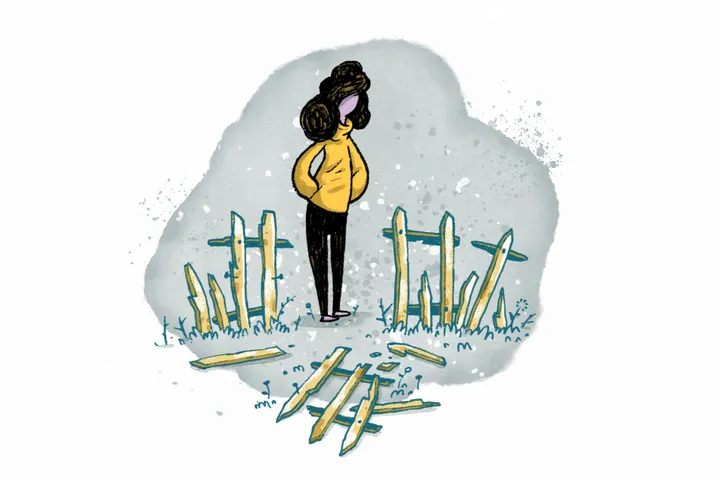We have an authority problem. It’s an American problem and it’s a global problem. Specifically, we don’t trust the leaders and institutions that should and could empower human flourishing.

Illustration by Adam Cruft
That’s the conclusion of the Edelman Trust Barometer, a yearly survey of over 36,000 respondents in 28 countries. According to the 2022 report, “The world is failing to meet the unprecedented challenges of our time because it is ensnared in a vicious cycle of distrust.” About two-thirds of participants think that figures of authority, such as journalists, politicians, and business leaders, flat-out lie. Many of us have been deceived, disappointed, and divided by authority figures. No wonder we have an authority problem. As pastor Tim Keller notes, “The root idea of modernity is the overturning of all authority outside the self.”
This mindset is an important issue for believers to resolve, because Jesus demands ultimate authority over our lives. In John chapter 10, Jesus says, “I am the good shepherd” (John 10:11). It’s a comforting, tender claim, but it also means, “I must be the preeminent authority in your life. My voice, My perspective, My teaching, My leadership must matter to you more than any other.”
Thankfully, Jesus goes on to remind us that His authority is desirable and beautiful. In verses 17-18, Jesus says, “For this reason the Father loves Me, because I lay down My life so that I may take it back. No one has taken it away from Me, but I lay it down on My own. I have authority to lay it down, and I have authority to take it back. This commandment I received from My Father” (John 10:17-18).
For decades I struggled to understand these two verses. Is Jesus saying God the Father loves Jesus, God the Son, because Jesus did something amazing by dying on the cross? Doesn’t that suggest God’s love is conditional? Two things unlocked this passage for me—a New York City firefighter and John 3:16.
Billy Burke served as the captain of Engine 21. I met Billy’s brother in the church I started pastoring on Long Island in June 2001. Three months later 9-11 hit. As the flames and smoke engulfed both towers, Billy and his team of firefighters charged into the North Tower. When they saw the South Tower collapse, Billy led his team back to safety, but then he reentered the building to save more lives. Before he died in the flames, one of the women Billy rescued heard him say, “This is what I do.”
Billy’s father loved him before 9-11, but today I imagine Billy’s firefighter father saying something like, “I’m so proud of my son. I love him because he bolted into a burning building and gave his life to save others. That’s exactly what I’d do because that’s who we are. We share the same heartbeat.”
According to John 3:16, God the Father, just like God the Son, really loves this cracked and sinful world. Throughout the New Testament, we catch a vision of this triune God, a communion of three persons who have always lived in perfect harmony, pouring love and honor into each other and united in pouring out love to all of creation. In chapter 10, Jesus builds on 3:16, in effect adding, “Like my Father, with the Holy Spirit, I love loving this unlovely world. I’d go into a burning building for these people. Rooted in Our shared love, I am laying down My life for the sheep under My authority. My Father and I—that’s who We are. He loves Me because I’ll lay down My life for the people We love. We share the same heartbeat of love for this fallen world.”
Working like a master carpenter, Jesus repairs our wrecked hearts and shows us the beauty of true leadership. And every other authority figure will eventually disappoint, leave (because mankind is fickle and mortal), use, or sometimes even crush us. Jesus is the only one who says, “Look how much I love you! I became sin to bear your sin away. I became poor to make you rich. I died like an unknown slave so you could be known by My Father. Now listen to My voice. Surrender everything. Hold back nothing.”
Sadly, we often do hold back from living under Jesus’ authority. We carry wounds and fears from damaged and damaging authority figures. But Jesus offers a warm invitation: I’m not like that. My authority always leads to life (John 10:10). So come to Me all who have labored under flawed or hurtful authority, and I will give you true rest under My loving leadership (Matt. 11:28-30).
Once we grasp the beauty of the gospel, it creates a whole new “authority problem”—the need to get more of Jesus’ authority over our lives!





